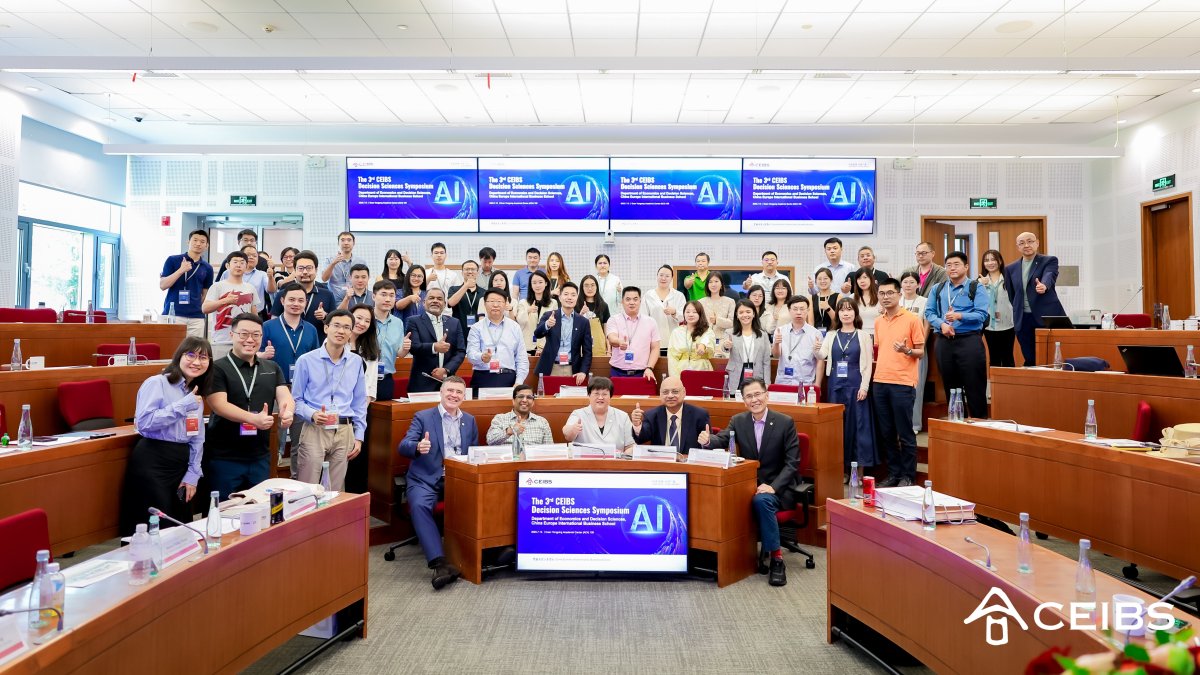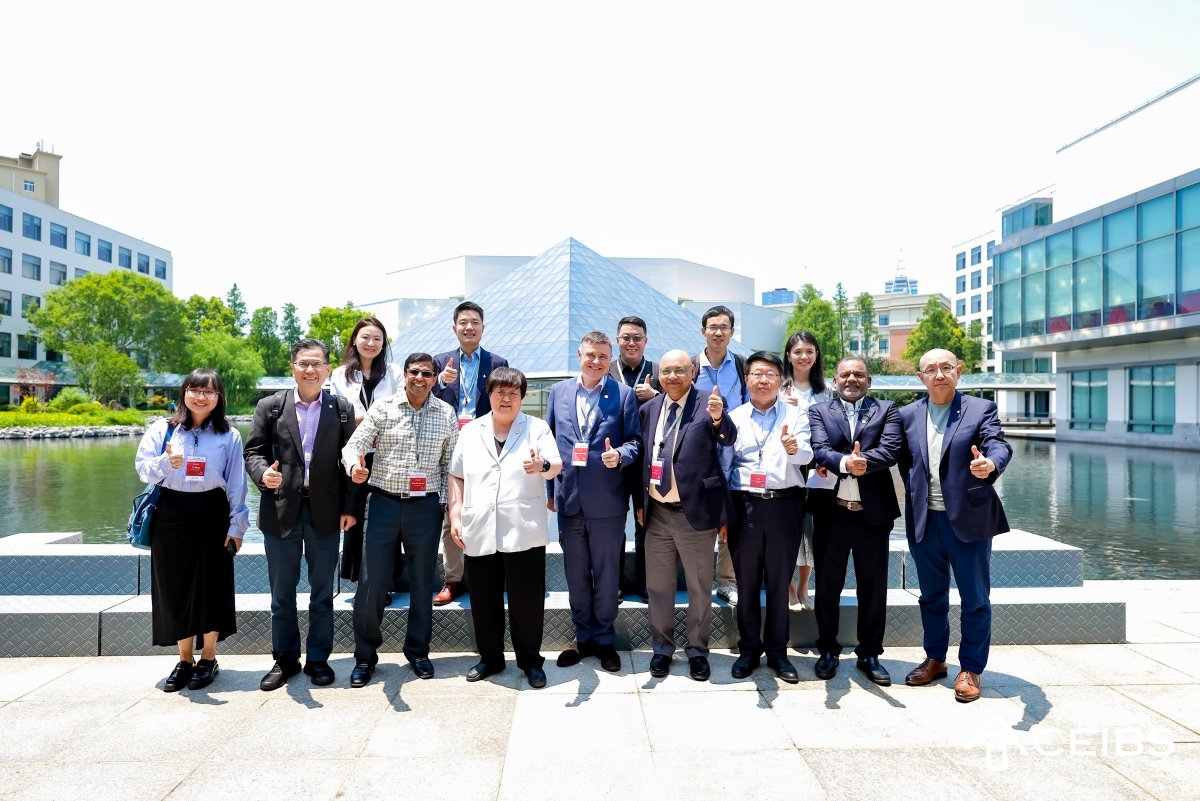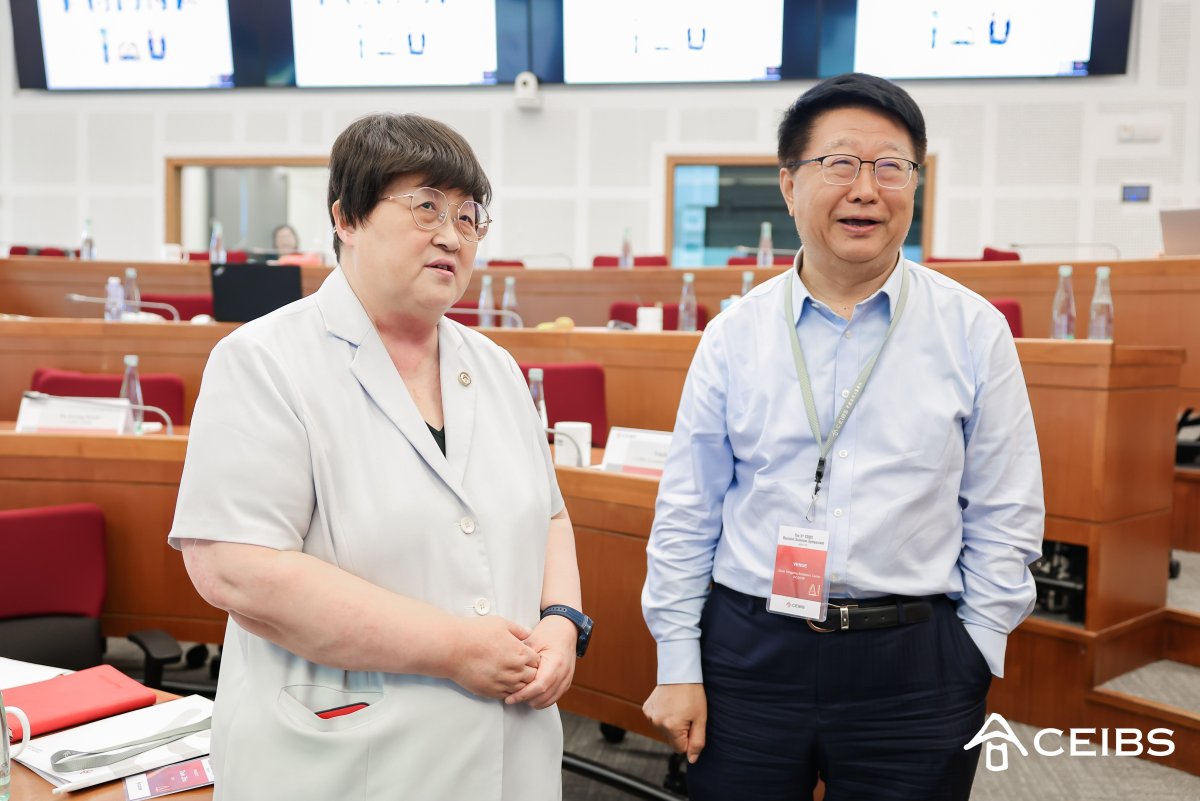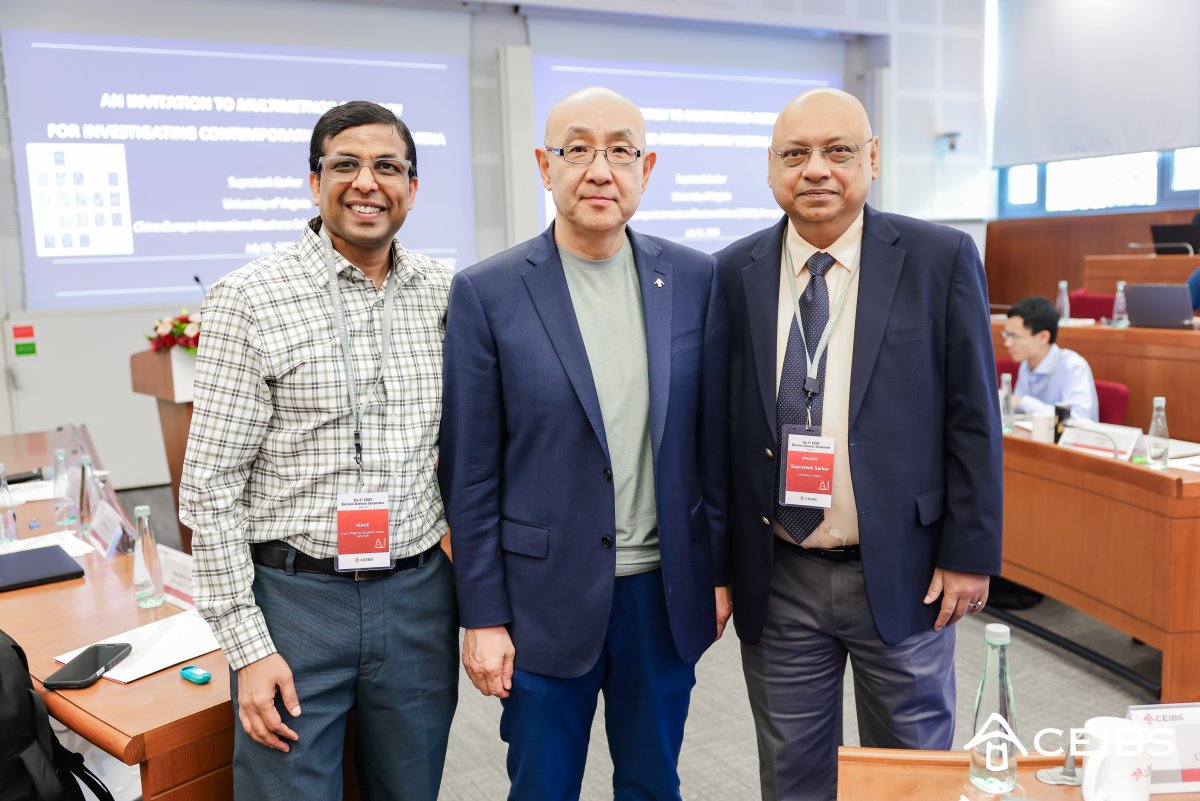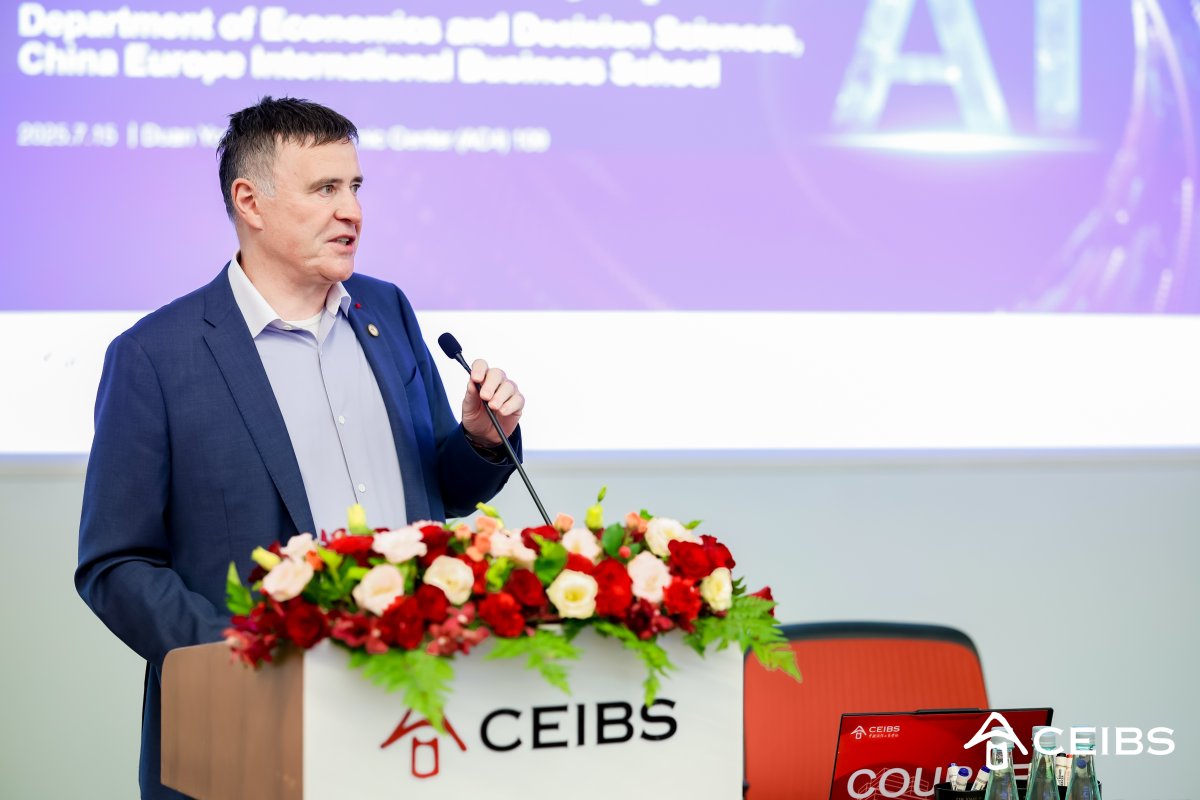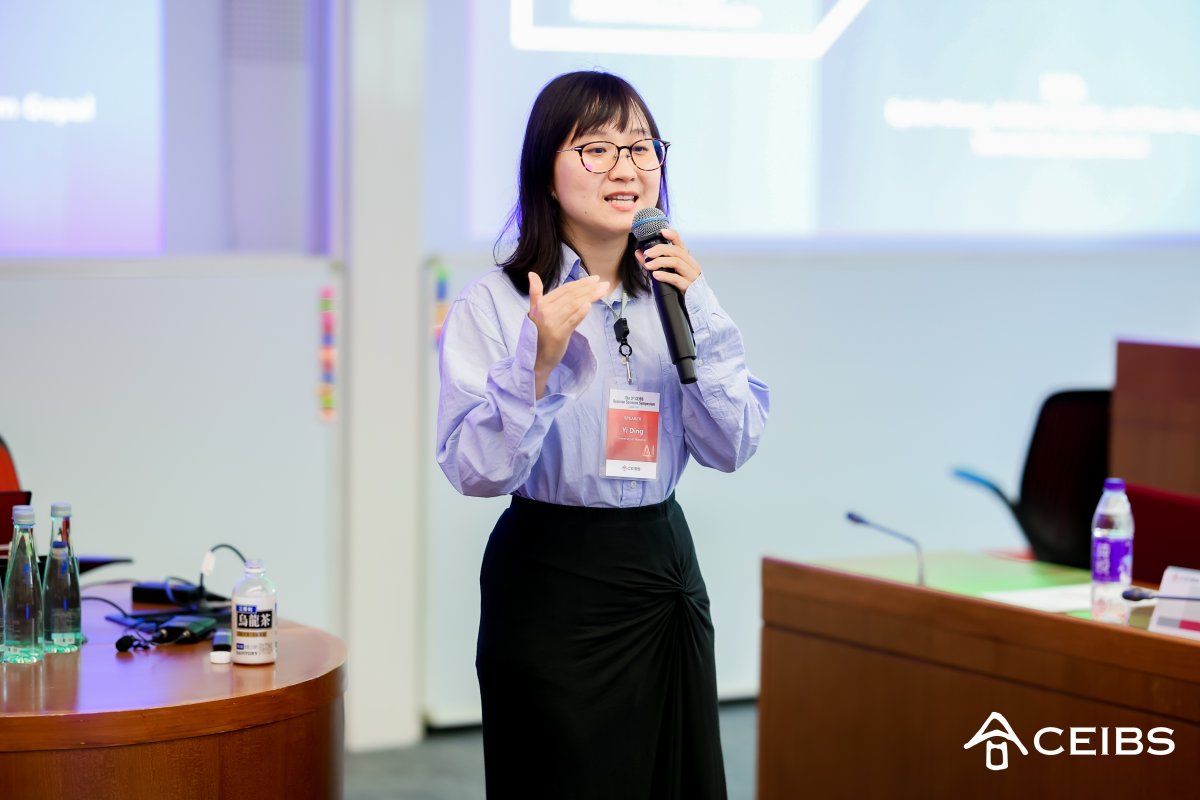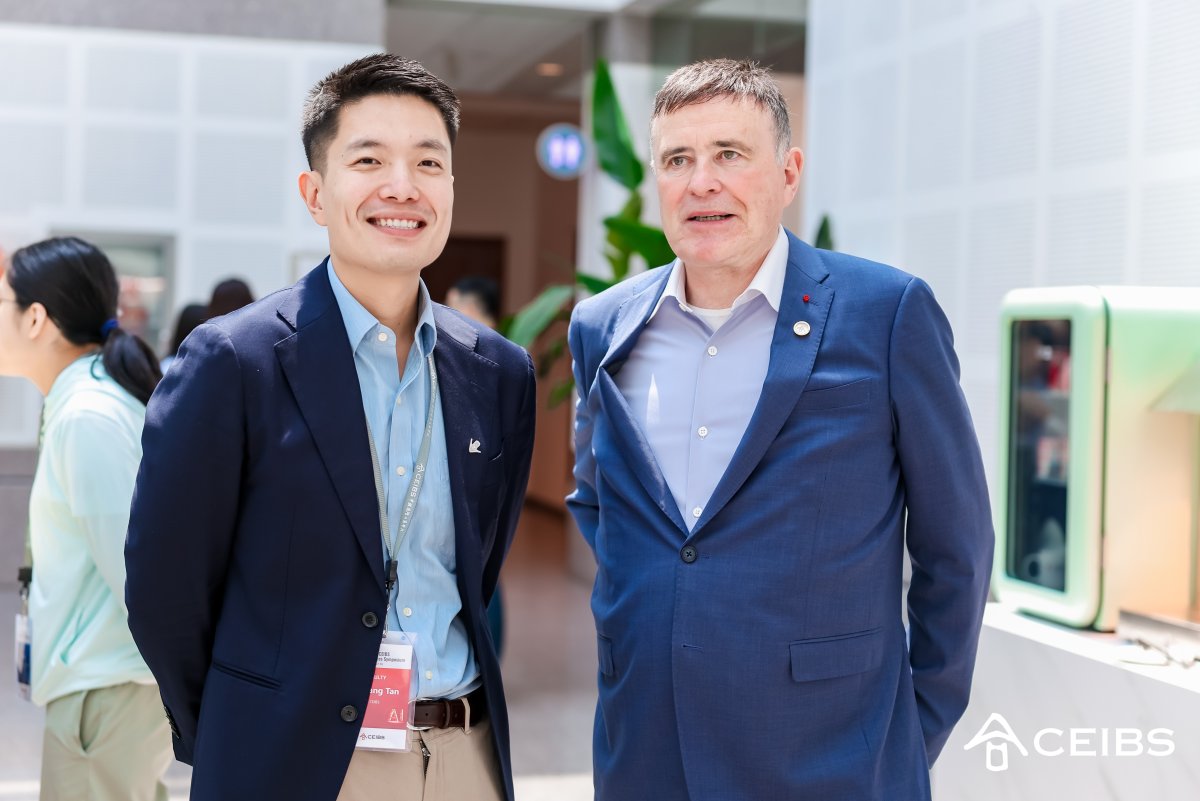The 3rd CEIBS Decision Sciences Symposium Held
The China Europe International Business School (CEIBS) held its annual Decision Sciences Symposium on July 15, 2025, at the Duan Yong Ping Academic Center, Room 109, on the CEIBS Shanghai Campus. The event was a hub of intellectual exchange, featuring leading scholars and FT journal editors presenting their latest research findings and engaging in thought-provoking discussions.
The symposium kicked off with an opening address by Frank Bournois, Vice President and Dean and Yue Fang, Chair of the Department of Economics and Decision Sciences at CEIBS. The day-long symposium was divided into two sessions and the following are excerpts from speeches given during the symposium:
Keynote Speech I:
1. Navigating the Future: Business Analytics and Disruptive Tech Trends in Information Systems, Operations Management, and Related Domains
2. How to Publish in POM Journal
Subodha Kumar, Temple University
This presentation will focus on emerging business analytics and disruptive technologies related issues across information systems, operations management, and other related domains. The goal is to present the details of some ongoing research in different domains and discuss new research ideas. The presentation will cover many topics such as Blockchain, Social Media Analytics, Healthcare Analytics, Omnichannel Retailing, Digital Advertising, Supply Chain Analytics, IT and Platform Management, and Sustainability, DEI, and Humanitarian Operations.
Keynote Speech II:
An Invitation to Multimethod Research for Investigating Contemporary Digital Phenomena
Suprateek Sarker, University of Virginia
This talk will provide a broad overview of multimethod research and aims to spark open discussion among participants. The speaker will present key ideas in an accessible way, inviting diverse perspectives and collaborative conversation.
Mitigating Sentiment Distortion in the Age of Generative AI
Yi Ding, University of Warwick
The rise of large language models (LLMs) has transformed how individuals generate and refine content across digital platforms. However, this study shows that LLMs can inadvertently alter the sentiment of original content, posing a significant challenge to the reliability of sentiment-based analytics used in business, policy, and research. Using two datasets—financial tweets and Amazon product reviews—we demonstrate that LLM rephrasing consistently shifts sentiment toward greater positivity, introducing measurable bias. We define this shift as a form of measurement error and quantify its extent using multiple sentiment analysis tools. To address this distortion, we propose two mitigation strategies: (1) fine-tuning LLMs to better recover human-like sentiment, and (2) applying sequential rephrasing to infer the original sentiment based on convergence patterns. Experimental results show that both methods substantially reduce bias and improve estimation accuracy, even when the origin of the content is uncertain. Our findings underscore a critical yet underappreciated consequence of generative AI: its influence on the perceived emotional tone of public discourse. By providing tools to recover authentic sentiment, this research advances more trustworthy analytics in an AI-mediated information environment.
Nudging for Artificial Intelligence Care Management Services: Evidence from a Randomized Field Experiment
Siliang (Jack) Tong, Nanyang Technological University
Artificial intelligence (AI) care management services are increasingly used in healthcare to improve patient engagement and outcomes. However, patient resistance and limited compliance remain significant barriers. This study examines how different nudging message designs influence patient acceptance and compliance with AI care management services. In particular, we investigate the effectiveness of social proof—informing patients that others have successfully used the AI service—with and without physician endorsement—assuring patients that a doctor will review the follow-up call. Leveraging a randomized field experiment in a leading Chinese hospital system, we find that basic text reminders reduce response rates to AI follow-up call services, whereas social proof, both alone and with physician endorsement, significantly increases patient responses. Furthermore, our results reveal that social proof combined with physician endorsement is more effective than social proof alone in driving patient compliance, as reflected in higher completion rates and increased return visits for follow-up examinations. Recognizing variations in patient responsiveness, we employ causal forest techniques to develop an optimal targeting policy, identifying patient segments most receptive to nudging interventions. Our study contributes to the IS literature by demonstrating how behavioral nudges can enhance AI care management service adoption. We also differentiate between acceptance and compliance, providing insights into targeted intervention strategies for optimizing AI-driven healthcare services.
The Value of AI-Generated Metadata for UGC Platforms: Evidence from a Large-scale Field Experiment
Renyu (Philip) Zhang, The Chinese University of Hong Kong
AI-generated content (AIGC), such as advertisement copy, product descriptions, and social media posts, is becoming ubiquitous in business practices. However, the value of AI-generated metadata, such as title, remains unclear on user-generated content (UGC) platforms. To address this gap, we conducted a large-scale field experiment on a leading short-video platform in Asia to provide about 1 million users access to AI-generated titles for their uploaded videos. Our findings show that the provision of AI-generated titles significantly boosted content consumption, increasing valid watches by 1.6% and watch duration by 0.9%. When producers adopted these titles, these increases jumped to 7.1% and 4.1% respectively. This viewership-boost effect was largely attributed to the use of this generative AI (GAI) tool increasing the likelihood of videos having a title by 41.4%. The effect was more pronounced for the groups more affected by metadata sparsity. Mechanism analysis revealed that AI-generated metadata improved user-video matching accuracy in the platform’s recommender system. Interestingly, for a video for which the producer would anyway have posted a title, adopting the AI-generated title will decrease its viewership on average, implying that AI-generated titles may be of lower quality than human-generated ones. However, when producers chose to co-create with GAI and significantly revised the AI-generated titles, the videos outperformed their counterparts with either fully AI-generated or human-generated titles, showcasing the benefits of human-AI co-creation. This study highlights the value of AI-generated metadata and human-AI metadata co-creation in enhancing user-content matching and content consumption for UGC platforms.
AI and Independent Career Moves
Yixuan Liu, CEIBS
We analyze how AI adoption relates to two forms of independent work: freelancing while employed and full-time entrepreneurship. AI adoption is associated with a higher likelihood of employees engaging in freelance work, particularly among workers with no or some college education and those with graduate degrees. This pattern also varies with the extent to which AI is integrated into creative functions. In addition, we find that AI adoption is linked to increased full-time entrepreneurship, concentrated among graduate-educated workers, along with a modest rise in startup activity involving AI-related technologies. Overall, our findings highlight the differentiated ways in which AI adoption shapes career trajectories in the creative workforce.







